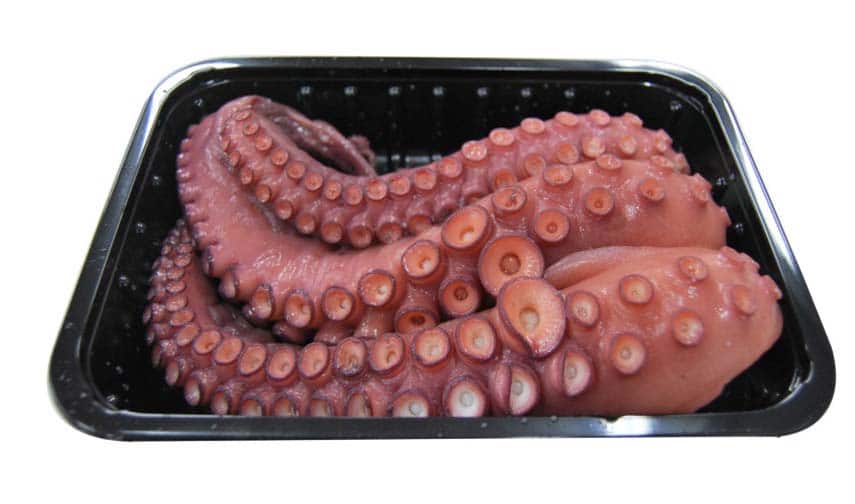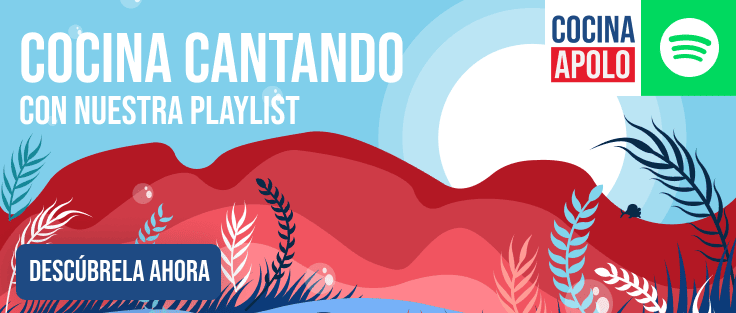Its special cooking and the quality of the raw material have consecrated the cooked octopus from Congelados Apolo as one of the most demanded products of the company from Granada, which produces and packages around 150,000 kilos per year of this exquisite octopus for its commercialization in different formats.
The company, leader in the frozen sector in Andalusia, has an octopus cooker specially designed to soften the meat of this cephalopod mollusk to achieve an optimum texture and flavor. It is not in vain, that this delicacy conquers the palates depends to a great extent on its adequate cooking. And a good part of the recipe for the success of Apolo’s frozen octopus, highly demanded by the hotel and catering sector, as well as for its distribution in different supermarket chains, is due to its professional cooking with that unique point, typical of the best Galician ‘pulpeiras’.
The company imports its octopus from Morocco, considered one of the best in the world for its tender and delicious meat. For its preparation, it uses state-of-the-art techniques in the freezing industry and strict safety controls that allow preserving its properties and flavor intact, removing preservatives and colorants from the food process.
Although Apolo frozen octopus is distributed throughout Spain, it is especially appreciated in Barcelona, Levante, Alicante and Andalusia, communities where the sales of this product stand out.
Congelados Apolo sells different formats of octopus in flower, as well as its delicious legs:
- Cooked octopus in flower from one to one and a half kilos or from one and a half to two kilos.
- Vacuum-packed cooked octopus leg in large (from more than 150 grams to 225 grams) and extra large (more than 225 grams) sizes. It is available with the same weight of the Gold Series, a label that distinguishes the extra quality of Apolo products.
- Cooked octopus leg in mixed trays – either with G legs, from more than 150 grams to 225 grams, or with GG legs, which exceed 225 grams. The same formats are available from the Gold Series.
Properties of octopus
The consumption of octopus dates back to ancient times. Its meat was already highly appreciated in Greece and Rome. Nowadays this octopus is still part of the Mediterranean culinary tradition, as well as in Korea and Japan, although its consumption is widespread all over the world. In Spain, it is part of the gastronomic identity of Galicia, where this deeply rooted food is the protagonist of festivals and dishes that have crossed borders, such as octopus a la gallega or octopus a feira.
Among the properties of octopus are its low fat and calorie content, which makes it the ideal ally to face the scales with a healthy and balanced diet.
The high protein content of octopus helps to maintain the skin, muscles, hair and nails. This food is also rich in taurine, which reduces cholesterol, helps detoxify the body and combat diabetes, as well as metabolic disorders in the liver.
Its amino acids and polysaccharides are also beneficial in preventing diseases such as depression.
Octopus also contains vitamin A, which acts against infections and promotes the creation of antibodies, bone growth and fertility, among many other functions. It is also a source of B vitamins, such as B1, B2, B6, B12, related to cell metabolism, as well as iodine, calcium and iron, among other minerals.
Curiosities about octopus
- They are intelligent
Although in the marine kingdom dolphins monopolize the limelight due to their intelligence, portrayed both in documentaries and fiction – who does not remember The Hitchhiker’s Guide to the Galaxy? Beyond the marketing associated with the now deceased Paul, with supposed divinatory abilities, or Rambo, the octopod photographer of the octopod photographer for SonyThe truth is that this animal is able to memorize patterns, avoid obstacles and solve problems. It is enough to see it in action when it is imprisoned in a jar with a screw cap..
- They smell through its tentacles
The 1,600 or so suction cups that run along the octopus’ tentacles contain its sense of smell as well as its sense of touch.
- They have three hearts… and blue blood!
In addition to having three hearts in their head, they can boast blue blood, since instead of hemoglobin they use hemocyanin to transport oxygen, with a bluish coloration.
- They can mimic other marine species
The Latre of octopuses – the mimic octopus (Thaumoctopus mimicus) – is able to mimic the shape and movement of more than 15 different species. This strategy allows it to scare off predators by impersonating venomous animals such as sea snakes.
- There are more than 300 species
More than 300 varieties of octopus have been documented. A long list ranging from the giant octopus of the Pacific, which reaches a weight of 150 kilograms, to the pygmy octopus of the Atlantic, whose maximum height does not exceed 9 centimeters. Their skills vary depending on the species: some use tools to defend themselves against predators, others are capable of surviving at depths of more than 2,000 meters…
- They can lay up to 100,000 eggs
Although their number varies according to the species. In addition, the mother dies to ensure the survival of her future octopuses. From the time they are laid until they hatch, they stop eating to take care of them 24 hours a day. Once they hatch, the female dies.
- The houdini of the sea
The absence of a skeleton – internal or external – makes the octopus one of the best contortionists of the sea. In fact, they are capable of penetrating virtually any crevice to escape their predators. The octopus known as the ‘houdini octopus’ stands out for its skills as an escape artist.
- Camouflage experts
Octopuses can blend in with their surroundings to go unnoticed by potential predators.
- They can self-mutilate a tentacle to escape.
Just as lizards shed their tails to flee from danger, when neither ink, camouflage or escapism work, octopuses are capable of shedding one of their tentacles to mislead potential predators. More curiosities about this extraordinary animal, in Fordivers.





